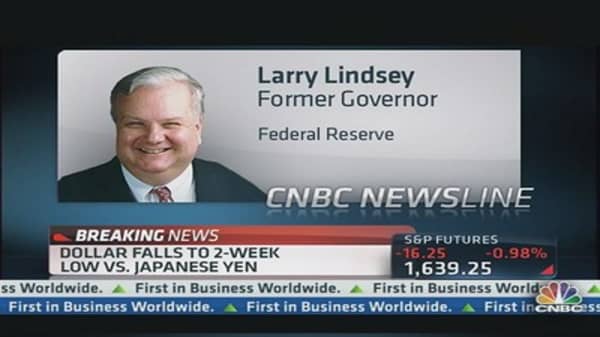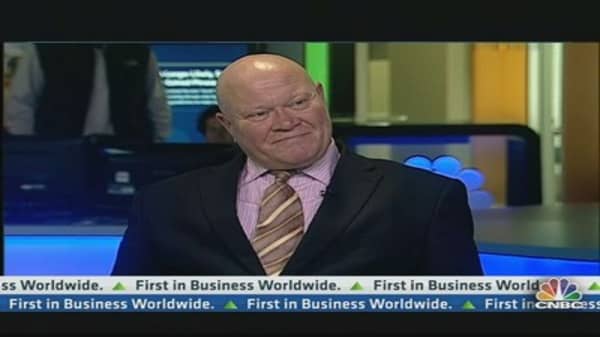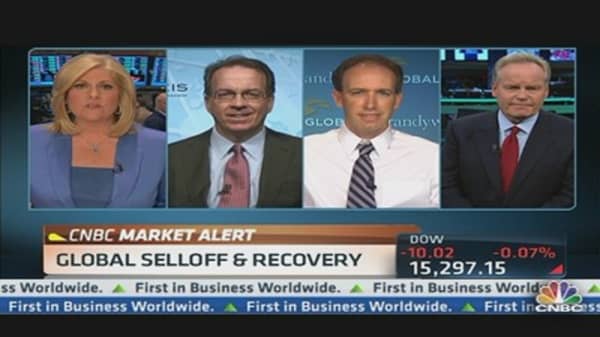Stocks closed modestly lower rebounding sharply in a volatile session as market participants weighed better U.S. economic data against the fears the Fed may soon start to curtail its bond buying.
The Dow Jones Industrial Average shed 12.67 points, or 0.08 percent, to close at 15294.50, getting support from Hewlett-Packard's 17 percent surge. The company posted strong earnings which CEO Meg Whitman attributed the strong results to a better-than-expected performance in enterprise services and printing.
The S&P 500 shed 4.83 points, or 0.29 percent, to close at 1650.52, while the Nasdaq ended down 3.88 points, or 0.11 percent, to close at 3459.42.
The Dow was down as much as 127 points, while the S&P 500 was off 20 points at the lowest levels of the morning.
Among S&P sectors, utilities and financials fell, while telecoms posted a modest gain. It was a volatile open for some utilities with American Electric and NextEra plunging sharply before recovering.






